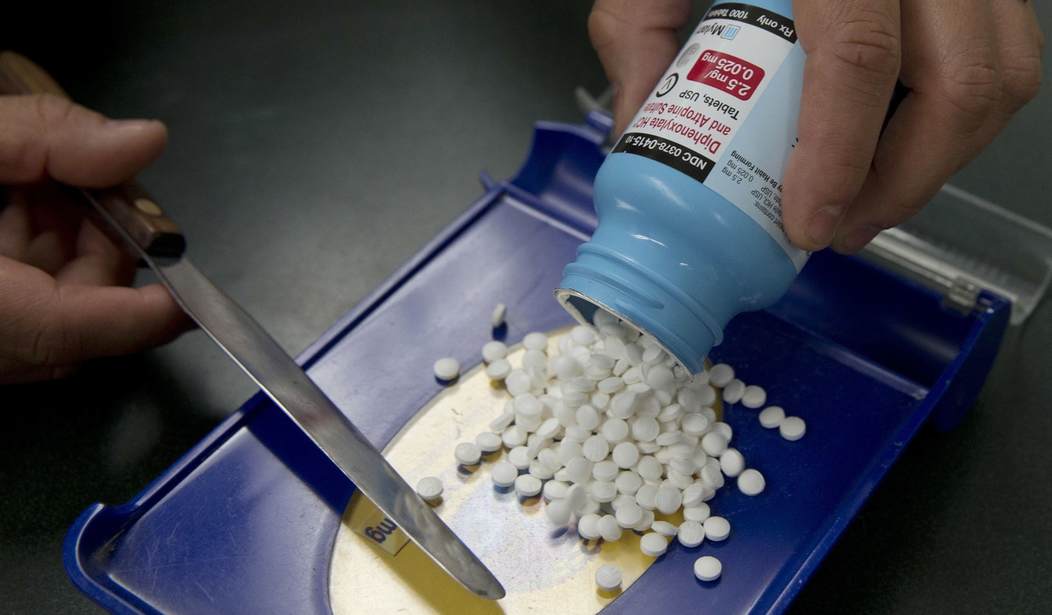After reading an excellent op-ed by Katherine Timpf, “Coronavirus Patients Should be Able to Try Any Potential Cure,” I could not agree more with Timpf’s main point. However, I think we can expand on Timpf’s thesis: “All patients suffering with a life-threatening disease ought to be able to try a potential cure to save their life.”
With millions of Americans suffering from debilitating diseases like ALS, cancer, and Alzheimer’s, there should be almost universal agreement that these patients ought to be granted the same access to life-saving drugs as patients with COVID-19.
According to Timpf, “[I]n times of crisis, we should unite around our common values as Americans.An individual’s bodily autonomy, especially when it comes to potentially life-saving options in a life-threatening situation, should certainly be one of them.”
I fully agree with this sentiment and fortunately Free to Choose Medicine (FTCM) offers a solution to this problem. In short, FTCM is a policy proposal that would bring better drugs to market sooner, and at a lower cost. Unbelievably, it currently takes more than a decade and more than a billion dollars to bring a drug from lab to market.
Shortly after the coronavirus pandemic caused a major health crisis, the U.S. Food and Drug Administration granted emergency-use authorization for hydroxychloroquine to treat COVID-19 patients. Yet, for decades, millions of Americans suffering with terminal diseases have been denied this same right to access potentially life-saving treatment.
FDA has the authority to grant expedited approval and implement a policy that would reform the drug approval process resulting in a free-market incentive for other bio pharmaceutical companies to develop medicine sooner and at a much lower cost. Under the FTCM track, unapproved therapies, like hydroxychloroquine, could come to market much sooner than they currently do, thus allowing those with debilitating conditions to access therapies that could cure life-threatening illnesses.
Recommended
Under FTCM, unapproved therapies would be required to pass initial FDA safety testing and at least one efficacy test before access would become available on a FTCM track. With doctor approval, patients seeking access would have the option to use the drug on the FTCM track. A crucial aspect of this process would include patient data being stored in a Tradeoff Evaluation Drug Database (TEDD) that would include extensive privacy protections. As the drugs are continually being tested for efficacy, patients would have the ability to try life-saving drugs, while companies can recoup investment sooner, contribute more money to research and development, and bring approved drugs to market as soon as possible.
Allowing patients and their doctors to make informed decisions about their health care is a necessity for all Americans, especially today. The battle against COVID-19 has exposed huge flaws in America’s regulatory system across the board that deter innovation and development. The health care sector, like most industries, is simply overregulated.
FDA ought to act as a bridge to innovation, not a barrier. Moreover, FDA should embrace FTCM to increase efficiency and expedite unapproved therapies (that have passed initial testing protocols) so patients have as many treatment options as possible.
FTCM is not a radical idea and is overwhelmingly supported by those on both sides of the political aisle. In fact, a poll commissioned by The Heartland Institute found that 92.8 percent of voters support FDA making “prescription drugs better, available sooner, and at a lower cost.”
Since the coronavirus pandemic, it seems as if liberty and individualism are under attack more than ever. Unfortunately, far too many governors, mayors, and bureaucrats are attempting to implement their collectivist vision, which is antithetical to America’s sacred values.
In one of the most influential speeches he ever gave, titled “A Time for Choosing,” Ronald Reagan said: “[Y]ou and I have the ability and the dignity and the right to make our own decisions and determine our own destiny.” That speech was given in 1964 and is more relevant today than ever.
As Americans, we need to constantly question why our fundamental freedoms, such as choosing to take a medication that can potentially treat debilitating diseases, are being denied to us. After all, who would you rather have making decisions about your health care: out-of-touch bureaucrats with no skin in the game, or you and your doctor?
























Join the conversation as a VIP Member